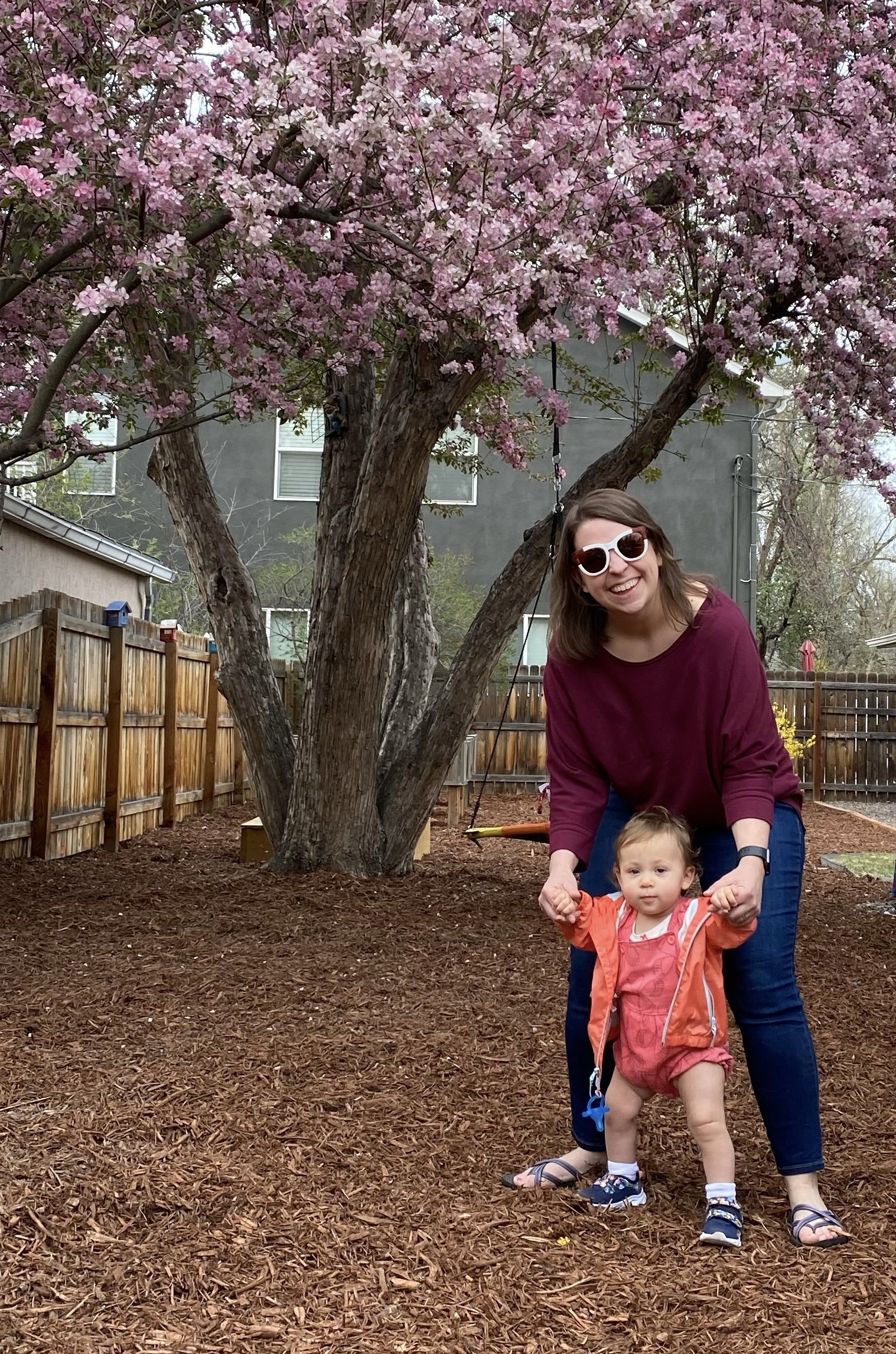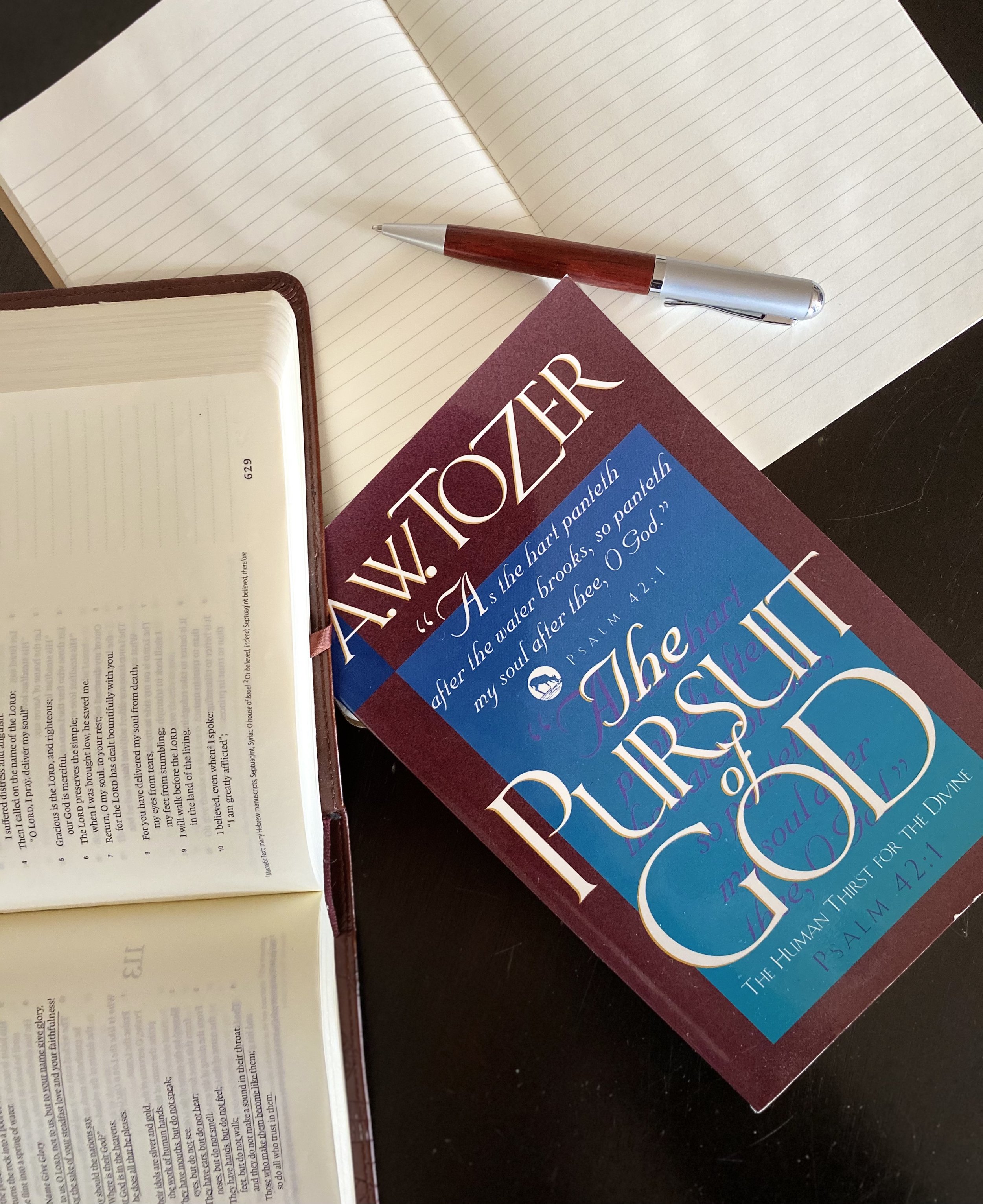
Belovedness
Beloved.
I’ve been sitting in prayer with this word, this idea, this fundamental, true-before-anything-else reality for weeks now.
Back in August, Bryan and I started the Ignatian Exercises, a nine-month journey of prayer that’s meant to be a retreat in daily life. It’s a journey that’s been practices for hundreds of years by followers of Jesus, and the first few weeks (depending on which version you’re using) invite you to sit with your belovedness in Christ Jesus. To soak in it. To wrestle with it. To wonder about it. To let God pierce and wreck and heal and beckon and restore your heart with it.

What if Your Spouse was a Catalyst in Your Walk with God?
A.W. Tozer played an enormous role in my early formation. I was encouraged by multiple people to read The Pursuit of God and Knowledge of the Holy when I was in high school and at the beginning of my intentional pursuit of Him. I didn’t understand half of those books at the time, but I wanted what Tozer articulated. Tozer was held out in my church and youth group circles as a model of what could be and someone to emulate. More than the content, though, his books made me want to pray.
I was a little jarred a few years later when I began working for the Christian and Missionary Alliance and met people who didn’t like Tozer. But Tozer was part of the C&MA, and one of their posterchildren. How could someone in the denomination not like him?, I wondered. I came to learn that he wasn’t a very attentive or present husband and father…I’ve held this question recently: What if there was a real ceiling on Tozer’s depth with God because he excluded his family? He may have had a deeper relationship with God than most have had throughout history, but what if he could have experienced even more of God? What would have happened if he had seen his wife and family as a help in his pursuit instead of a hindrance?

Spiritual Formation in Marriage
What if your spouse was your best companion in your journey with Christ?

Being Seen
The LORD bless you and keep you;
the LORD make his face shine on you
and be gracious to you;
the LORD turn his face toward you
and give you peace. (Numbers 6:24–26 NIV)
I have always loved this blessing. I often use it as a benediction at the end of worship services and in devotional material. I really enjoy the song that was released based on Numbers 6 at the beginning of the pandemic. Recently, though, it has taken on new meaning as I am relearning the power of being seen.

The Slow, Subtle Work of the Holy Spirit
*This is a repost of a journal article we wrote together a few years ago, when we were living in Northern California. The journal is no longer active, so as we approach Pentecost, we want to share it with you!
I bow my head and invite the Holy Spirit to fill me afresh. “Come Holy Spirit, come. Guide me as I review my day, noting the places where you’ve been at work. Give me eyes to see you in moments I wasn’t paying attention. May I give them back to you in simplicity and gratitude.”
This is how we usually begin the prayer of Examen. This prayer practice became especially significant in separate seasons of transition, uncertainty, and aimlessness—seasons in which we each needed the healing salve of the Holy Spirit’s presence.

The Formation of Motherhood
The house is currently quiet, with Bryan working upstairs in our home office while I work at the dining room table. Eva is taking her morning nap, but even as I type, I'm very aware that she could wake up at any moment.
So what do I do with this precious time, while my little one rests? Do I work? Write? Spend time in prayer? Read a book? Do some laundry, prep lunch, make a grocery list...? Or do I mindlessly scroll Instagram in an attempt to assuage my monkey brain/exhaustion/desire for connection, and feel instead the pangs of guilt or jealousy or longing or ...?

Centering Prayer: Loving Attentiveness to God
I was having a conversation with a friend the other day and in the midst of that conversation, our attention turned to the practice of silence, or in some traditions, the specific practice of centering prayer.
There has been a lot of conversation about the benefits of silence and centering prayer, leading to the affirmation of pushing through the initial discomforts with such a practice. Neuroscience has affirmed these benefits on a physiological level. Many counselors have expressed the benefits they have seen in clients. I have felt those benefits myself. And to be sure, a part of me gets very excited to see the broad personal benefits that silence and centering prayer has on people.

Why You Should Read (or Re-Read) Tozer’s The Pursuit of God
This week, I (Bryan) thought it'd be fun to do a deep dive into one of my favorite and most influential reads: A.W. Tozer's The Purusit of God. Tozer wrote this classic work to stir believers toward an ever deepening intimacy and life with God. His words not only resonated when he wrote them nearly 70 years ago, but feel more and more prophetic for our day and age.

Practicing Hope
A few weeks ago I was in a session with my own spiritual director, and we talked about hope. I’ve had quite the back-and-forth with hope over the last few years, as Bryan and I walked through more than three years of infertility. I’ve described hope as stubborn, something that just won’t quit or let go of me, even when despair was lurking nearby. And there were certainly moments of despair. Somehow though, even when it felt impossible, I held onto the stubborn hope that someday we’d have children of our own.
After my spiritual direction session ended, I walked away with this question: How exactly do I actually practice hope? What does it look like to live out hope in daily moments? I’ve been pondering these questions for a few weeks, and I thought I’d share some ways that the Lord has helped me to put hope to practice. Clinging to and living out our hope feels like something we all could use right now.

Lament as Praise
Grief has been a topic gaining significant traction this year, and for good reason. We’ve faced constant change in every sphere of our lives, and we’ve been hit with a tidal wave of things to grieve, be they big or small, concrete or more difficult to define and articulate. When the world takes a much different--and in many ways a traumatic, tragic, disrupting--direction than we expected, how are we to respond? How do we cry out to God when we feel powerless?
I have found myself grieving the loss of normalcy and a sense of certainty, and there’s a heavy feeling of powerlessness that follows. I may not have actually possessed any more control before, but it’s all the more apparent how very little control I actually do have. And while it’s a good thing to recognize that only God is in control, there is still a grieving process in shedding the false notion of my own sense of control.
And then, things that we have already been grieving may be intensified in this season.
